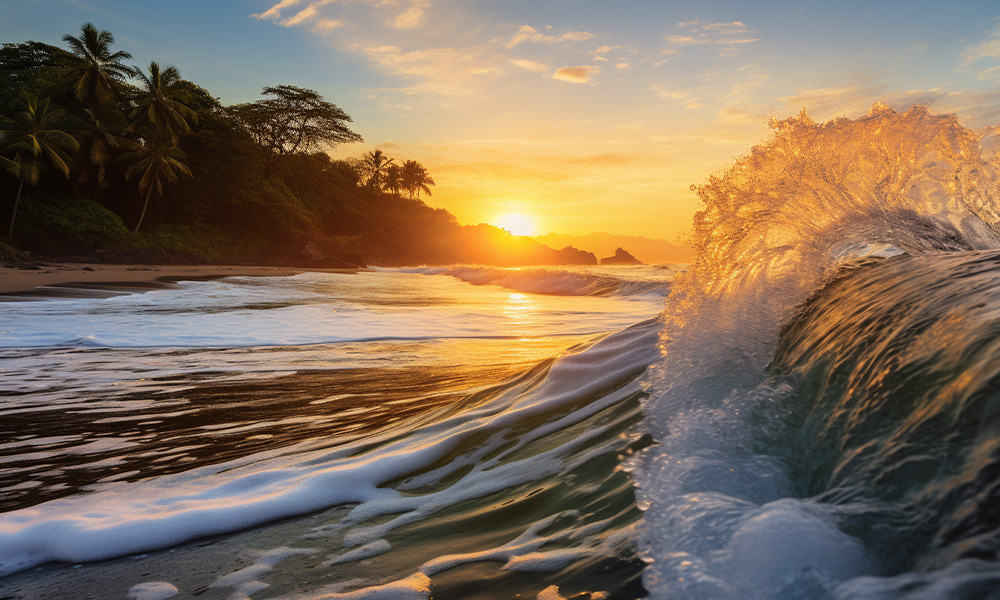Costa Rica is experiencing a rising trend in ocean temperatures, with recent measurements showing the highest levels ever recorded in the country. Scientists attribute the increase to climate change and the ongoing El Niño phenomenon.
According to data from the University of Costa Rica’s Center for Research in Marine Sciences and Limnology (CIMAR), temperatures peaked at 32.46°C in early September based on readings from the tide gauge station in Herradura. CIMAR researcher Omar Lizano called the measurement “a temperature unseen before in Costa Rica.”
Lizano stated that global projections from the U.S. National Oceanic and Atmospheric Administration show temperature anomalies up to 3°C above normal across the Pacific Ocean. He said measurements off Costa Rica’s shores confirm an upward trend in heat consistent with worldwide warming.
“Ocean temperatures are 2 to 3 degrees higher than they should be. While the El Niño effect contributes, there is a steady rise in temperatures, especially 1,800 meters offshore, undoubtedly due to climate change,” Lizano emphasized.
Experts at Costa Rica’s National Meteorological Institute explained that El Niño also impacts average sea levels due to thermal expansion. Satellite data reveals sea level increases over 25 cm above base tides across Central America’s Pacific coast.
The elevated temperatures and sea levels are taking a toll on marine ecosystems and coastal communities. Lizano pointed to obvious coral bleaching and death in areas like San Juanillo and Sámara as severe ecological impacts. Warm waters stress corals, causing them to eject algae and lose their coloration. Prolonged high temperatures prevent algae from recolonizing the coral, leading to its demise.
With coral reefs dying off, numerous species of fish, crabs, shrimp and other marine life lose their natural habitat and protection. Cocos Island has seen decreases in shark populations as they migrate to cooler waters during El Niño warming events. New species adapted to high temperatures move into previously unaffected areas, disrupting local ecosystems.
Coastal erosion has also accelerated along both the Pacific and Caribbean shores, according to experts. Beaches in Sámara, Carrillo, Jacó, and other areas are especially vulnerable. While El Niño contributes, scientists confirm the overarching factor remains climate change warming ocean waters.
Costa Rica is not alone, as coastal regions across the planet are experiencing the effects of climate change on oceans. But the country’s reliance on marine ecosystems for fishing and tourism means it is especially at risk.
Lizano called on authorities to continue monitoring ocean health and implement mitigation strategies. “While we cannot eliminate El Niño, we must reduce greenhouse emissions and other human impacts. Our observations should guide policy changes to protect marine resources before damage is irreversible,” he stated.
Citizens can also help by reducing plastic waste, conserving water and electricity, and pressuring leaders to enact ‘blue carbon’ climate solutions. Costa Rica’s oceans are a national treasure, and it will take a collective effort to safeguard them for future generations.






